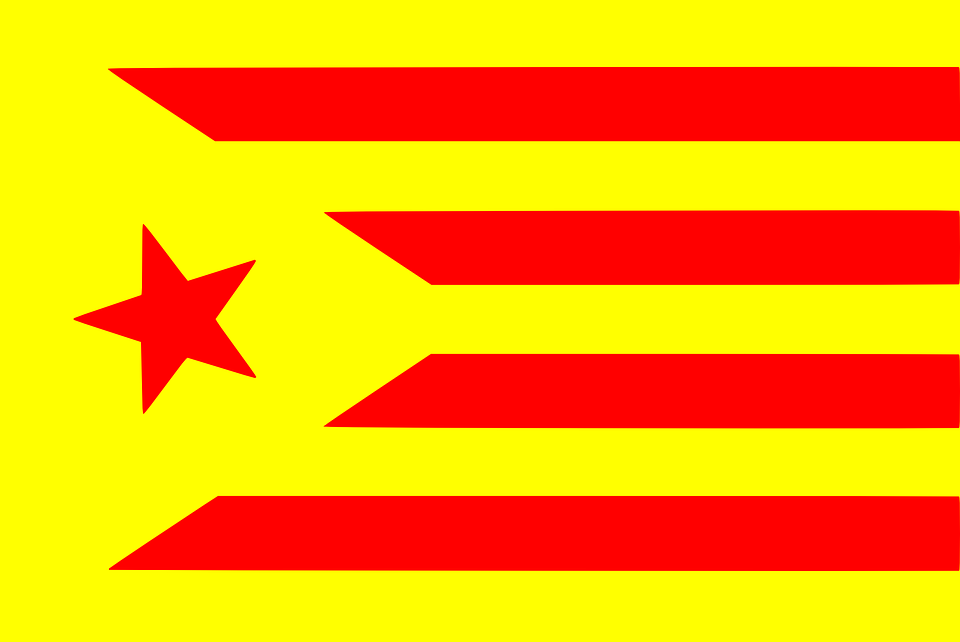Venice Going Independent and Language Referendums
In a world where it seems increasingly important for us all to get closer there are various countries around the world with states intent on driving those countries apart. We are talking of course of independence referendums, and one that has currently got our attention is that of Venice.
Venice, should it succeed in gaining its autonomy from Rome, wants to further separate itself by having its dialect recognised as an official language, which gets us language enthusiasts giddy with delight.
Let's look at what the Venetian referendum may contribute to the language pool, and ponder further additions from referendums elsewhere.
Photo via Pixabay
La Serenissima Repubblica
Venice and its surrounding region enjoyed independence for almost one thousand years, until it was ceded to Austria by an invasion of Napoleonic troops at the end of the eighteenth century. But Venice only became part of Italy in 1866, some five years after a kingdom was carved out of a number of independent states and territories.
The Venetian dialect of Veneta is said to be spoken by more than two-thirds of Venetians, giving locals ample reasons for wanting the dialect to be recognised as equal to Italian in language status. The majority of Italian speakers cannot understand Venetian because it is so distinctly different, which seems a good a reason as any for Venetian to be its own language. As examples the word glass is bicchiere in Italian yet goto in Venetian, and where for Italians an apple is a mela, for Venetians it is a pomo or pon – which is actually a closer pronunciation to French's pomme and Catalan's poma, but that might be a debate for another day.
Venice wants to follow in the independence footsteps of other distinctively different regions like Valle d'Aosta where French has a large influence, and South Tyrol where German is a recognised official language. Both of these regions teach these other languages in their schools, and use the language in governmental offices and on signs; it is fitting then that should Venice gain its independence from Rome, that Veneta is put on the curriculum.
Linguists actually recognise up to four different dialects in the Venetian region, however, which could make the call for bilingualism all the more difficult; which of these dialects is the true dialect of Venice? It is one of many arguments against Veneta's language status being altered, along with cost and an overall waste of time. Surely language is a crucial part of Italian heritage and therefore deserves its preservation in whatever form that may take, just as the historical city of Rome is carefully preserved?
Catalonia

Photo via Pixabay
Depending on who you speak to in Spain, Catalonia's constant campaigning for independence is either an embarrassment or an ideology of the people that should be fully endorsed. Where Brits have been waxing lyrical about Brexit at their water coolers this past eighteen months or so, the strive for independence in Catalonia appears to Spaniards to have been going on for years.
Catalan, the language spoken by some nine million people in Catalonia, Valencia, the Balearic Isles, Andorra and Alghero in Sardinia, is not to be confused with Castilian – Spanish as is taught as the true language of Spain. Catalan isn't even a dialect of Spanish, having developed independently from the vulgar Latin spoken by Romans colonising the Tarragona area.
Catalonia had been an independent, autonomous province within the kingdom of Aragón, with Catalan spoken as the popular tongue and the unification with Castile by the marriage of Ferdinand and Isabella seeing Castilian becoming the language of court and literature. But when Barcelona fell to Spanish troops in 1714, Catalan had restrictions imposed on it by the government and Spanish became the official language.
The nineteenth century saw the rise of the nationalist cultural movement renaixença, which in turn revived Catalan as a literary language. Should Catalonia be successful in its bid for independence, will Catalan finally be recognised as an official language?
Learning a new language? Check out our free placement test to see how your level measures up!
Giving smaller voices a platform

Photo via Wikimedia
In February 2016, a convention of Native Hawaiians announced their wish to be autonomous from the US. The Hawaiian language was once banned from being taught in Hawaiian schools; could independence see a surge in this native language?
China has numerous states seeking autonomy. With independence movements for Inner Mongolia, Tibet and Xinjiang Uyghur to name just three, could autonomy for these mean adding even more to the language pool?
Finally, no talk on independence referendums is complete without looking back at the Scottish Referendum of 2014. True, Gaelic is a language usually only looked on wistfully with bursts of nostalgia found in literature, art and song. But in the future, should Brexit happen and Scots finally choose to become independent, could Gaelic be the tongue we are greeted in on crossing Hadrian's Wall?
What about your state? Is there a local dialect you think should receive official language status? Let us know!



